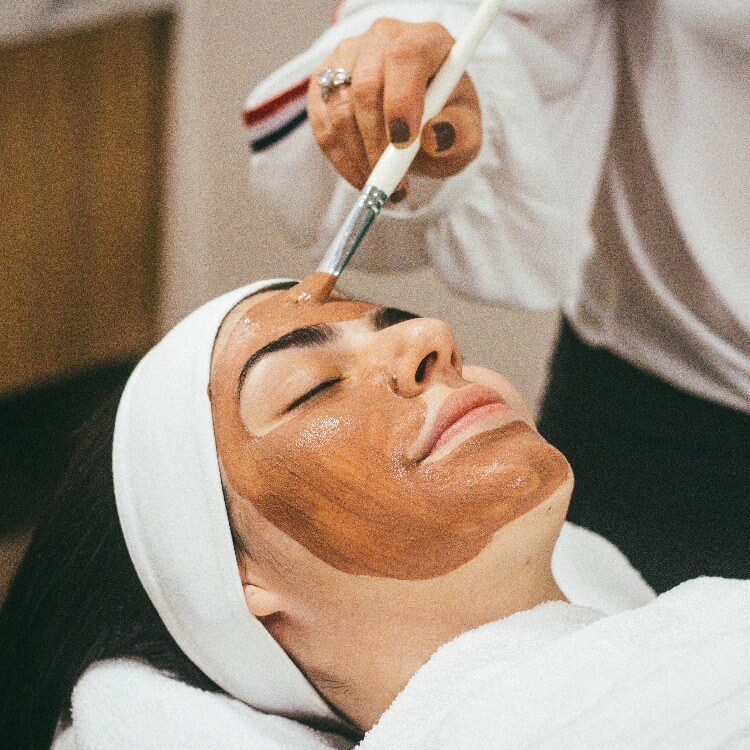
Skin Barrier Repair: A Thorough Guide for a Healthy Complexion
The skin barrier is the outer covering that protects the skin from external influences and helps it retain moisture. Daily exposure to harmful agents can damage the skin barrier and impair skin health. Fortunately, there are effective methods for repairing the skin barrier that boost the skin’s excellent regenerative abilities.
What Is a Skin Barrier?
The skin barrier or stratum corneum, is the outer layer of the epidermis responsible for maintaining skin integrity. It is composed of corneocytes embedded in a lipid matrix. This barrier serves as the body’s primary defense against external influences. Flattened, dead skin cells called corneocytes are densely arranged to create a shield. Simultaneously, the lipid matrix, composed of ceramides, fatty acids, and cholesterol, functions like a mortar to seal the intercellular spaces.
They prevent excessive water loss, inhibit the entry of pathogens and toxins, and protect the underlying tissues from external influences. Injuries or inflammatory conditions can disrupt the skin barrier and compromise its function. This is reflected in increased susceptibility to infections, dehydration, and dermatological issues.
What Destroys Skin Barrier?
There are external and internal causes of a damaged skin barrier. The major reason is environmental influences – exposure to UV radiation, pollutants, and extreme weather conditions. These elements can disrupt the balance of the skin’s lipid matrix, dehydrate skin and impair their function.
Certain skin care practices, like the excessive use of harsh cleansers or exfoliants, can strip away essential lipids and compromise the integrity of the skin barrier.
As we age, collagen and elastin production decrease, resulting in skin barrier damage. Smoking and chronic stress cause oxidative stress, inflammation, and altered lipid metabolism. This leads to premature aging and damages epidermis integrity.
Other than that, inflammatory skin conditions, like eczema and psoriasis, also contribute to the breakdown of the skin barrier. These conditions disrupt the function of corneocytes and impair lipid synthesis.
Signs of Damaged Skin Barrier
If you discover any unusual changes in your skin, a damaged skin barrier may be the reason. Below, you’ll find a range of signs indicating an impaired skin barrier:
- Heightened sensitivity: Redness and a burning sensation upon application of skin care products that you normally use.
- Increased dryness and flakiness: Reflect weakened moisture retention.
- Rough or uneven texture: Indicative of a weakened skin barrier.
- More pronounced static and dynamic wrinkles: A result of decreased skin elasticity.
- Persistent red patches and acne: Arise due to inflammation and impaired barrier function.
- Susceptibility to infections: A weak barrier makes it harder to resist environmental stressors.
Skin Barrier Repair Advice
There are effective ways to fortify and nourish your skin with proper skincare and healthy lifestyle habits. You can strengthen your skin barrier by following these strategies:
Refrain From Exfoliation and Face Cleaners
Exfoliants can remove the outer layer of the epidermis and damage the barrier’s integrity. On the other hand, frequent use of face cleaners may disrupt the lipid matrix, even on oily skin. This is why avoiding exfoliation and harsh cleansers is the first step towards restoring the skin barrier. If your skin barrier is damaged, skip these practices for a while.
Reduce Skin Inflammation
Inflammation triggers the release of cytokines, mediators of the immune system. When released, they induce excessive proliferation of keratinocytes. This process disturbs the skin’s ability to retain moisture and defend against external factors. Products with ingredients like green tea, calendula, and ceramides can be helpful in alleviating this condition.
Follow a Proper Skincare Routine
When your skin barrier is damaged, the most potent tool is proper skincare. Natural cosmetic products contain vitamins, minerals and antioxidants essential for skin health. Instead of cleansing and exfoliating, focus on proper hydration and skin nutrition. Here are the proven ingredients you can try for strengthening the skin barrier:
- Hyaluronic acid – Hydrates and plumps the skin; reinforce the skin barrier through moisture retention.
- Niacinamide (vitamin B3) – Exhibits anti-inflammatory properties and supports cellular repair.
- Glycerine – Acts as a humectant, attracting and retaining moisture.
- Panthenol – Improves hydration and soothes the skin.
- Fatty acids – Restore the lipid barrier and enhance skin suppleness and protection.
- Chamomile extract – Calms the skin, reduces inflammation and improves its resilience.
- Aloe vera – Hydrates, reduces inflammation, and promotes a healthy complexion.
- Shea butter – Rich in fatty acids that moisturize and nourish the skin.
- Jojoba oil – Acts as the skin’s natural oils, supporting skin barrier repair.
- Licorice root extract – Its antimicrobial properties help with redness, scars, and inflammation.
- Coconut oil – As other natural oils, effectively hydrates and nourishes the skin.
Ingredients in skincare products that can further disrupt the skin barrier:
- Retinoic acid – When the skin barrier is damaged, it can exacerbate irritation and dryness.
- Hydroxy acid – Although they are a common ingredient in peels and are widely used in the reduction of age spots and fine lines, hydroxy acids shouldn’t use people with a damaged skin barrier. They can increase sensitivity and thinning of the skin barrier.
- Alkaline products – Disrupt the skin’s natural pH levels and further impair the functionality of the skin barrier.
- Parabens – Have the potential to cause skin irritation and increase sensitivity, which enhances the vulnerability of skin barrier.
- Formaldehyde – Formaldehyde is well known for its ability to irritate and sensitize skin, and it could worsen a weakened skin barrier.
- Isobutyl – As a synthetic ingredient, it may cause irritation and hinder the skin’s ability to repair.
Use Quality Moisturizer
Skin hydrators replenish essential lipids and help skin maintain optimal hydration levels. Effective ingredients in a quality moisturizer work synergistically to attract and retain moisture within the epidermis. That prevents transepidermal water loss and skin dryness. Apart from keeping skin moist, hydrators reinforce the lipid matrix, an important component in maintaining a strong skin barrier.
Eat Healthy and Stay Hydrated
Unhealthy lifestyle habits affect the health and appearance of your skin. As dehydration can affect the skin’s barrier, drink enough water to maintain optimal skin hydration.
Antioxidants like vitamins A, C, and E protect the skin from oxidative damage. They induce cellular repair and regeneration, which contributes to skin barrier repair.
Fish oil and other forms of omega-3 fatty acids promote the production of skin lipids, which also leads to gradual restoring of skin barrier.
Nourish From The Inside
Combining food supplements with effective skin care products is a safe way to treat a damaged skin barrier. Apart from fatty acids and antioxidants, there are other bioactive compounds that improve skin health. Here are the ones with most potent influence for the skin:
- Collagen peptides: Contains amino acids vital for skin structure.
- Zinc: Promotes healing, increases collagen production, and supports immune function.
- Probiotics: Influence inflammation responses and improve skin barrier health.
- Polyphenol supplements: Boost collagen and elastin production, shielding the skin from oxidative stress and inflammation. VANA’s Smart Liquid™ formula is based on polyphenols and potent herbal ingredients. It is an effective way to protect your skin from further damage and diminish signs of aging. The advantages of VANA extend beyond skin resilience. Here you can find out more about the health benefits.
Frequently Asked Questions
How long does it take to restore skin barrier?
The time for restoring the skin barrier depends on the severity of the damage and the effectiveness of the chosen products to restore the skin barrier. In mild cases, improvements may be noticeable within a few days to a week. However, in cases of chronic conditions or dermatological issues, the process may extend over several weeks to months. It is important to consistently use skincare products that are suitable for your skin type.
How do I know if my skin barrier is damaged?
Restoring the skin barrier starts with recognizing various warning signs. Common symptoms include heightened sensitivity, redness, flakiness, and a rough skin texture. If you experience persistent dryness, increased susceptibility to irritants, or frequent skin infections, it is a clear indicator of a damaged skin barrier.
What not to use when repairing skin barrier?
It is advisable to stay away from specific skincare products and procedures when trying to heal damaged skin. Avoid aggressive exfoliants, as they may make irritation worse and disrupt the skin’s balance. Products containing alcohol, strong fragrances, and artificial ingredients should also be avoided, as they can strip away natural oils and further compromise the skin barrier. Instead, choose gentle, hydrating formulations that feed skin without causing additional stress to the damaged barrier.
Does vitamin C damage skin barrier?
Vitamin C does not damage the skin barrier; in fact, it contributes to skin health. However, in some cases, high concentrations or low pH levels in vitamin C formulations may cause irritation or a stinging sensation, particularly on a damaged skin barrier. Quality vitamin C formulations can boost collagen production, antioxidant defense, and overall skin health.


